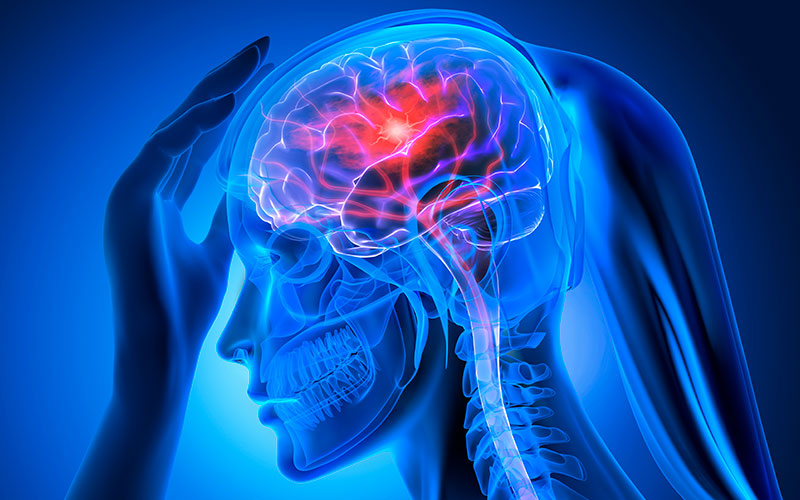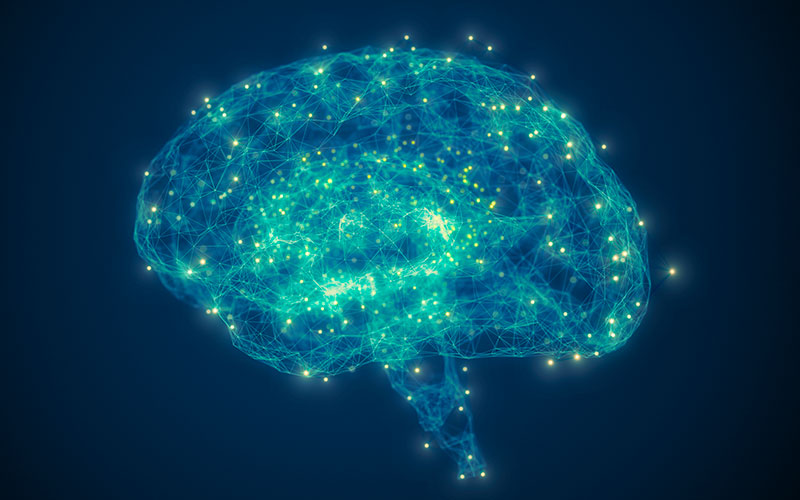- Home
- Growth Hormone
- Growth Hormone
- Growth Hormone Deficiency
- Growth Hormone Therapy
- Growth Hormone Injections
get startedThe Most Effective Hormone Replacement TherapiesHow Does Human Growth Hormone Impact Memory and Brain Functions?
Among the many benefits of human growth hormone (HGH) are its positive impacts on memory, cognition, and other brain functions.
Human growth hormone, or HGH, is one of your body’s most important hormones. HGH is produced by the pituitary gland. HGH is mainly responsible for stimulating or regulating all of the processes that allow children to grow into healthy, strong, and vital adults.
However, as important as HGH is to health and wellbeing, it is a fact of nature that we lose HGH as we age. Over time, this decline in HGH levels in the blood can lead to what is known as "age-related growth hormone deficiency." Growth hormone deficiency or GHD has a negative impact on your health, not the least of which can be a loss of memory and decline of other cognitive functions.
In 2011 a group of scientists found that increasing the level of HGH in rats led to a dramatic increase in memory. The experiment was set up to test how well the rats would remember an associated trauma like experiencing a shock upon entering a certain part of a maze. The researchers found that the capacity of the rats to remember and avoid the shock as much as a day or two later more than doubled in the mice that were treated with HGH!
How Does HGH Work for Memory Loss in Adults?
There have been several recent studies that show a link between HGH levels and brain function, particularly in the areas of cognition, memory, and emotional states.
Most recently, researchers with the Mount Sinai School of Medicine in New York City were able to definitively illustrate a relationship between growth hormone therapy and improvements of memory in rats.
The scientists devised a task that would test the memories of the mice in the experiments. They used a box that was lit on one side and unlit on the other. Rats that entered the dark side got a mild foot shock. The rats’ subsequent hesitation in returning to the dark after getting shocked gave the scientists a measure of how well they remembered the traumatic event.
Interestingly enough, the scientists documented that as the rats were shocked, their levels of naturally occurring growth hormone spiked. The rats retained the memory of the unpleasant experience for quite some time, being afraid to go into the dark side of the box for weeks after the initial shock.
Then the scientists wanted to see what would happen if they artificially increased the growth hormone levels of some of the mice in the study. They injected additional growth hormone into the brains of the mice at various intervals during the box training, such as immediately after a shock or more than a day later. The researcher said that the HGH injections enhanced their recall dramatically. "Their hesitation, or latency, more than doubled," said Cristina Alberini, lead researcher on the project. "It’s a very potent effect."
Other studies have shown similar improvements in memory in humans who have received growth hormone injections. A 2010 study looking at the impact of HGH decline on memory in adults concluded, “Growth hormone deficiency (GHD) results in spatial memory impairment in midlife – and is prevented by HGH supplementation.”
Anecdotally we see improved memory as a benefit of HGH in our patients on growth hormone therapy all of the time.
HGH is a necessary component of keeping brain cells healthy and functional.
What Is the Impact of HGH Deficiency on Memory?
Why does HGH improve memory? Apparently, HGH helps repair damaged brain tissue and aids in the ability to produce proteins in the brain used for storing memories. In adults with an age-related growth hormone deficiency, these memory functions of HGH are impaired. HGH therapy has been shown to return that functionality.
After eight to twelve weeks of taking HGH injections, patients report improvements in mental alertness, motivation, and memory.
Can HGH Reverse Memory Loss?
We cannot say with any scientific certainty that HGH therapy can "reverse" memory loss that may have already occurred. But studies and anecdotal evidence are clear that it does improve memory and cognition in patients on HGH therapy.
A recent study published in the Archives of Neurology demonstrated an improvement in cognitive function in older adults with mild cognitive impairment (MCI). This study is one of the many that show a definitive link between growth hormone replacement therapy and improvements in memory.
In this, patients who received a hormone that increases growth hormone production in the body experienced significant improvements on tests for cognition and verbal memory. According to the research team, the findings in this 2012 study "replicate and expand" the results of a 2006 study by the same group of researchers that found favorable effects of HGH on memory and cognitive function in healthy older adults.
In their conclusion, the study team pointed out that growth hormone has "potent effects on brain function, [HGH] levels decrease with advancing age, and [HGH] likely plays a role in the pathogenesis of Alzheimer disease."
Several previous studies have drawn a link between HGH levels with poor cognitive performance and an increased risk of Alzheimer’s disease.
What Memory Benefits Can I Expect from HGH Therapy?
The study mentioned above and several others indicate that HGH therapy can be an effective tool in the prevention and treatment of Alzheimer’s and related dementia. But even folks who are not experiencing dementia or other such severe cognitive impairments can benefit from the memory-boosting abilities of HGH therapy.
The human brain thrives on HGH. Growth hormone receptors are abundant in the brain. These receptors control not only memory but also learning, focus, and emotional states. Since HGH helps keep cortisol levels low, it reduces stress and improves sleep. The better you sleep, the more mental focus and clarity have during the day.
Since HGH works directly on its brain receptors, human growth hormone therapy helps to stimulate and improve learning, focus, and memory. You can expect a quicker recall of previously stored information. Mental fog disappears, and cognitive functions improve.
Growth hormone deficiency can lead to memory loss and cognitive difficulties.
HGH and Emotional Wellbeing
In addition to having a positive effect on memory and possibly delaying dementia, HGH also impacts other brain functions such as cognition and emotional wellbeing.
HGH has also been linked to moods. Adults with age-related growth hormone deficiency tend to have mood swings and are more prone to depression and anxiety. This seems to be due to the relationship that HGH has to the production and release of neurotransmitters – the brain’s so-called “feel good” chemicals – such as dopamine and serotonin.
Sometimes people who are irritable or in a bad mood are said to be "hormonal." That is not entirely a slang term. Hormones, and the delicate balances between them, do have a profound effect on our emotional states. HGH injections not only raise the levels of HGH in your body, which in and of itself has a direct impact on mood, memory, and cognition, HGH therapy is designed to bring all of your critical hormones back into balance, which also helps to stabilize moods.
As stated earlier, the connection between HGH therapy, mental health, and emotional wellbeing begins with HGH’s ability to increase dopamine, serotonin, and other endorphin levels. Dopamine helps protect against feelings of anxiety and stress. Endorphins and serotonin act as antidepressants. In fact, you may have heard of common antidepressant drugs referred to as "SSRIs." SSRI stands for "selective serotonin reuptake inhibitors." This means the way that these drugs work is that they inhibit your body’s ability to absorb (reuptake) serotonin, so your brain cells remain bathed in the chemical for longer periods of time, and you feel "good" rather than anxious or depressed. HGH injections can have the same effect without the side effects and controversy surrounding the use of SSRIs.
HGH therapy has been shown to improve memory and reduce depression and anxiety.
Now that you understand a little more about how HGH impacts memory, why not contact us today and learn more about the many benefits of testosterone replacement therapy.
- Growth Hormone Therapy



























